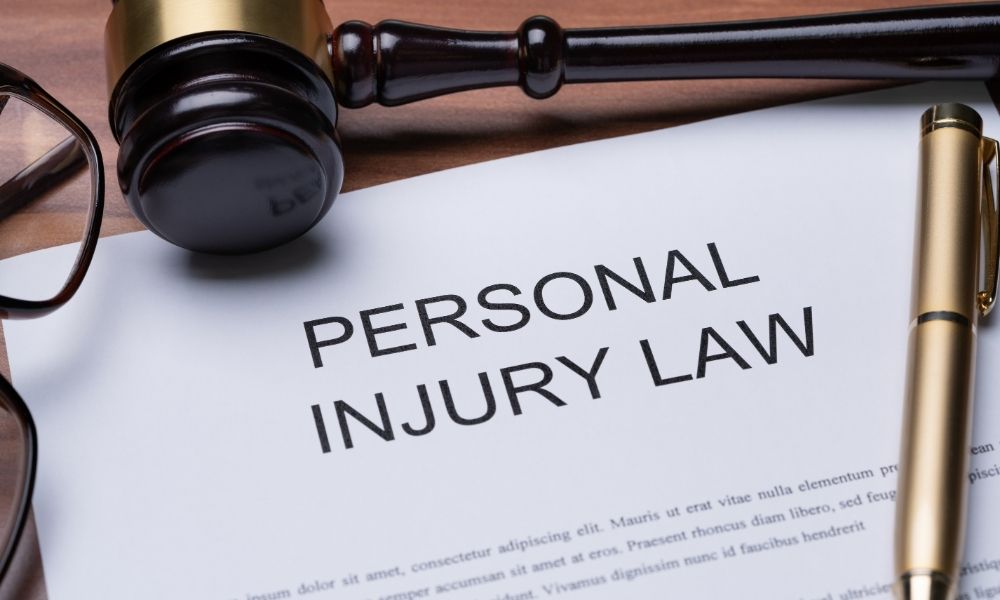Filing a personal injury claim can be a daunting process, especially if you are unfamiliar with the legal intricacies involved. Understanding the key aspects of personal injury law and the steps necessary to build a strong case is essential to maximize your chances of success. A well-prepared claim can significantly influence the compensation you receive and the overall outcome of your case. This guide outlines eight crucial things you should know before filing a personal injury claim, providing you with the knowledge needed to navigate the legal process effectively. By being informed, you can make better decisions and ensure your rights are protected throughout the process.
- Understanding the Statute of Limitations
- The Importance of Pre-settlement lawsuit funding
- Gathering Comprehensive Evidence
- Understanding Comparative Negligence
- The Role of Insurance Companies
- Calculating Damages
- The Importance of Medical Treatment
- Legal Representation and Its Benefits
- Preparing for Potential Litigation
- Conclusion
Understanding the Statute of Limitations
The statute of limitations is a critical factor to consider before filing a personal injury claim. This legal deadline dictates the timeframe within which you must file your lawsuit, typically ranging from one to three years, depending on the jurisdiction and type of injury. Missing this deadline can result in your case being dismissed, regardless of its merits. It is essential to know the specific statute of limitations applicable to your situation and take timely action to preserve your legal rights. Consulting with an attorney early on can help ensure that your claim is filed within the required period.
The Importance of Pre-settlement lawsuit funding
Pre-settlement lawsuit funding for personal injury claims can provide financial relief to individuals awaiting the outcome of their cases. This type of funding allows plaintiffs to cover essential expenses like medical bills and living costs without the pressure of settling early. By securing pre-settlement funding, plaintiffs can pursue fair compensation without compromising due to financial stress
Gathering Comprehensive Evidence
Collecting comprehensive evidence is fundamental to building a strong personal injury claim. This includes medical records, photographs of the accident scene, witness statements, and any relevant documentation that supports your case. Detailed evidence can establish the extent of your injuries and the circumstances surrounding the incident, making it more difficult for the opposing party to dispute your claim. Additionally, maintaining organized records of all expenses and correspondence related to your injury is crucial. Thorough documentation not only strengthens your case but also helps in accurately calculating the compensation you are entitled to.
Understanding Comparative Negligence
Your personal injury claim may be heavily affected by the legal notion of comparative negligence. In many countries, the amount of compensation you get might be reduced in proportion to the degree to which you are deemed partly responsible for the accident. If the court finds that you were 20% at fault for the accident, for instance, they will cut your compensation by 20%. If you want to know how your claim may turn up, you need to know how comparative negligence works in your jurisdiction. You may get help with this and fight against any arbitrary blame from a skilled attorney.
The Role of Insurance Companies
Insurance companies play a pivotal role in the personal injury claim process, but their primary goal is to minimize payouts. Adjusters can employ various tactics to reduce the value of your claim, such as disputing liability or questioning the severity of your injuries. It is important to approach interactions with insurance companies cautiously and be aware of their strategies. Providing clear, consistent information and avoiding unnecessary statements can prevent your words from being used against you. Having legal representation can also ensure that your rights are protected and negotiations are handled professionally.
Calculating Damages
Accurately calculating damages is essential to ensure you receive fair compensation for your injuries. Damages can include medical expenses, lost wages, property damage, and non-economic losses such as pain and suffering. Future costs, such as ongoing medical treatment and loss of earning capacity, should also be considered. An experienced attorney can help you identify and quantify all potential damages, providing a comprehensive assessment of your claim’s value. Properly calculated damages reflect the true extent of your losses and strengthen your bargaining position in negotiations.
The Importance of Medical Treatment
After an accident, it is critical to get medical help right away. Making a formal record of your injuries is crucial for your claim, and it also ensures your health and well-being. To minimize gaps in your medical records that may be used to dispute the reality of your injuries, it is important to follow all medical recommendations and complete the appropriate treatment regimens. Keeping track of your recovery and therapy may also show how the injury has affected your day-to-day activities. You may bolster your claim and fight for just pay with consistent medical data.
Legal Representation and Its Benefits
Having legal representation can significantly impact the outcome of a personal injury claim. An injury attorney can provide expert guidance through the complexities of the legal process, ensuring that all necessary documents are filed correctly and on time. They can also negotiate with insurance companies on your behalf, aiming to secure the maximum compensation for your injuries. Moreover, an experienced attorney can gather critical evidence and witness statements to strengthen your case. By hiring an injury attorney in Atlanta or your local area, you can focus on your recovery while knowing that your legal rights are being robustly defended.
Preparing for Potential Litigation
While many personal injury claims are settled out of court, preparing for potential litigation is essential. This involves understanding the trial process, organizing evidence, and being ready to present your case before a judge or jury if necessary. Your attorney will guide you through the pre-trial procedures, including depositions and motions, and develop a compelling argument for trial. Being prepared for litigation demonstrates your commitment to seeking justice and can influence settlement negotiations. Thorough preparation for trial ensures you are ready to pursue your claim.
Conclusion
Filing a personal injury claim requires careful planning, thorough evidence collection, and a clear understanding of the legal landscape. By being aware of the statute of limitations, gathering comprehensive evidence, and understanding the role of insurance companies, you can build a strong foundation for your claim. Accurately calculating damages, seeking appropriate medical treatment, and securing legal representation further enhance your chances of success. Preparing for potential litigation ensures that you are ready to advocate for your rights in court if necessary. Armed with this knowledge, you can navigate the personal injury claim process effectively and pursue the compensation you deserve.










